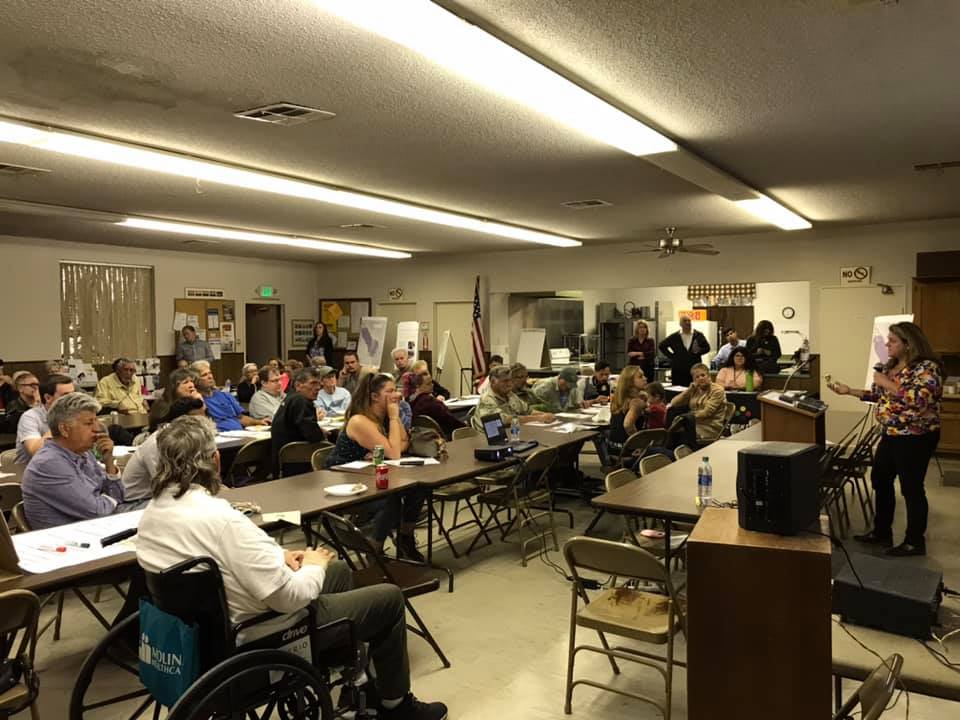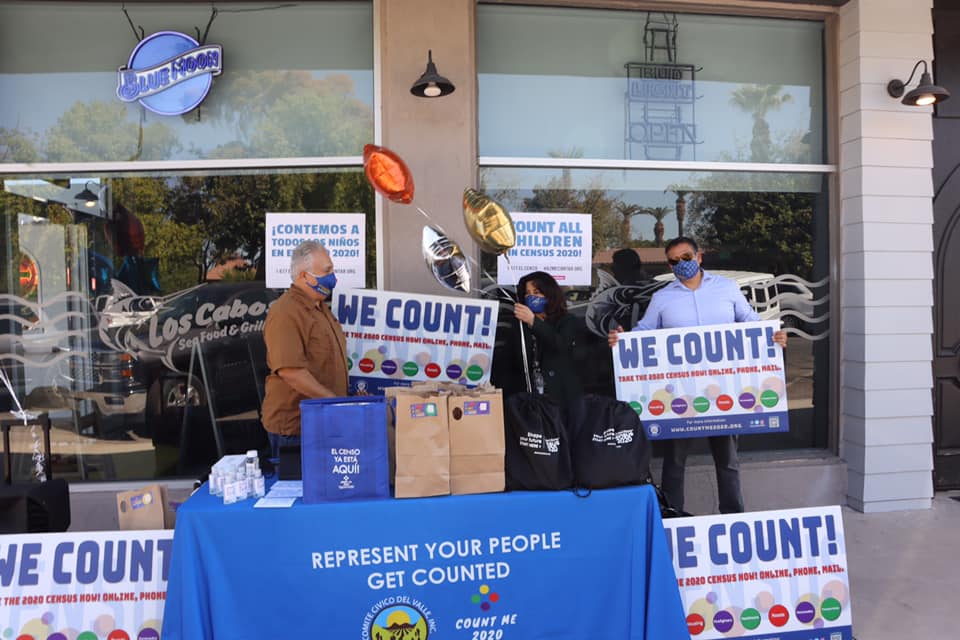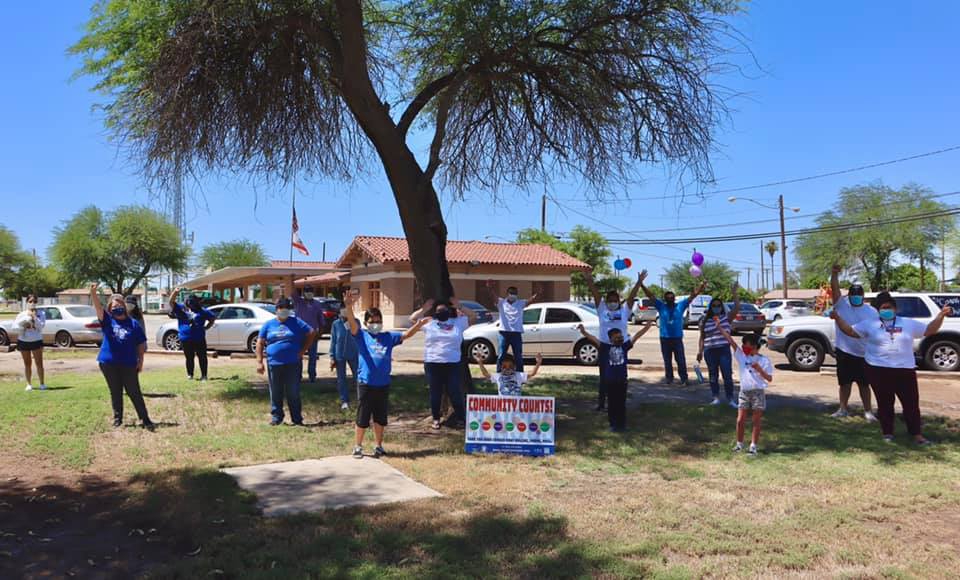Water Foundation (WF): Hi, Miguel. To start us off, how does Comité Civico del Valle support community power building?
Miguel Hernandez (MH): Comité Civico del Valle (CCV) strongly believes that informed communities build healthier communities. Therefore, one of the strongest strategies to support community power is by ways of educating and informing community members about relevant concerns that impact their quality of life and engage them to be part of the discussions.
Creating and nurturing partnerships in the region has led to stronger community advocates who have been a key to advance policy and legislation for the benefit of disadvantaged communities of the Salton Sea Region. Collaboration with various partners, with different expertise, and different perspectives has allowed us to comprehensively tackle the obstacles that our community faces on a constant basis.

In February 2020, residents gathered for a community meeting on dust suppression plans on the Salton Sea, Comité Civico del Valle.
WF: With that in mind, how do you work with residents and with policymakers to advance public health and quality of life goals?
MH: We have strong relationships with our legislators and bring community concerns to help them recognize the burdens and disparities that our communities face. This helps shape the legislation that would bring equity to our region. We promote and provide spaces for community members to meet, to the extent possible, with our legislators in the Assembly and Senate, as well as in the local county level and with city officials.
We believe that hearing testimonies and sharing ideas open opportunities for collaboration.
Creating dialogues directly with community members, our legislators, and policymakers helps shape the future of our communities.
With the help and support of our local partners, we promote and encourage the civic participation of community members, such as participating and making themselves counted in the Census and voting, as well as encouraging their participation in City Council meetings and Imperial County meetings.
WF: Can you share a little more what this entails on the Salton Sea?
MH: We have been able to engage community members to be partakers in the decision-making process for the Sea. We’ve been able to further inform and educate the community of the Salton Sea region in various aspects: providing context and history; sharing the objectives that the state’s Salton Sea Management Program aims to achieve; and engaging in conversations that make residents feel encouraged to participate and find out more about how they can contribute to improving the projects and plan for the future of the Salton Sea.
WF: What is giving you hope for that future?
MH: The recent and active progress that the champions in the legislation have been able to accomplish in different ways, by being able to secure funds, create a new working group at the federal level, and creating a sense of accountability to have progress happening at the Sea has been able to provide hope for CCV and the communities we serve.
We need all hands on deck. Having a strong unified approach to tackle the long-fought battles in the Salton Sea Region provides hope to actually addressing public health and improving the quality of lives of those that have been heavily impacted by not just the Sea, but all different sources of pollution found in the region. There still exists an urgent need to start seeing collaboration between governmental agencies, landowners, and stakeholders. A meaningful collaboration that promotes the health and well-being of the Salton Sea region and its residents will help build that hope.

Comité Civico del Valle staff and partners at a Census 2020 outreach event in Brawley, CA, Comité Civico del Valle.
WF: What should policymakers and funders be doing to support community power in the places you work?
MH: Policymakers should be allowing and promoting forums and safe environments that reach and bring grassroots communities into conversations where decisions are being made. The community knows exactly what the needs and burdens are, and they are the ones that need to be heard in order to inform meaningful policies that create true significant change in our communities.
Funders should continue to identify the expertise that lies in the community. Grassroots organizations that directly serve the most marginalized and disenfranchised communities need significant support to serve our communities directly and help people stay educated and engaged in topics that affect their well-being.
